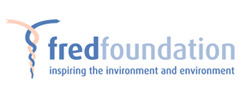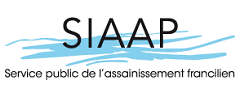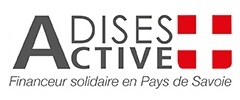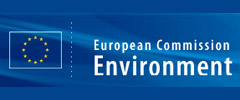WECF International Training on Sustainable Energy
The report on the international training week "Sustainable energy in Germany projects and legislation" (June 1-6, 2008) is now available in English, Russian and German
28.07.2008 |Regina Drexel

Over 40 participants came to Munich for a 5 day training on sustainable energy, from Tajikistan, Kirgistan, Kazakhstan, Uzbekistan, Russia, Belarus, Ukraine, Georgia, Armenia, Bulgaria, Moldova as wel
On June 1, the WECF training week on "Sustainable Energy in Germany - Projects and Legislation" started in Munich. 40 participants from 14 countries met in the evening with the WECF organisational staff to get to know each other. The participants gave a short presentation with posters about their activities on energy issues.
On June 2nd, the training started in Messestadt Riem. Presentations were made on energy saving and ecological building and energy saving projects in Bulgaria with local people (energy brigades) and in Germany (Munich) with schools (fifty-fifty project). Another topic was wind energy and the sustainable energy concept of a community near Munich (Haar). We took a closer look at energy efficient buildings at the new trade fair city in Messestadt Riem and at a private house, built ecologically by the WECF energy expert Herbert Danner. We also visited a big open space solar plant and a small-scale windmill used for a groundwater pump.
On the 3rd of June, after a short Munich tour, we visited a small hydropower plant at the river Isar, in the middle of town in Munich (Muffathallekraftwerk). Later, we had an excursion at the education centre for solar technology (Langwied) and learned a lot about how the apprentices are trained. The next stop was another new housing estate, Ackermannbogen, where houses are supplied with energy from local heat from solar thermal energy. We also learned about the German renewable energy law.

On the roof of the educational center for solar technology
On June 4th, the topics discussed were climate change and global political action. Speeches were given on the UNFCCC, United Nations Framework on the Climate Change Convention, and the active role of NGOs in the CAN, Climate Action Network. A further topic discussed was the implementation of local or national projects in Germany in the context of the Renewable Energy Law. We also got input on activities with young people using solar energy at the Chemnitz youth environmental and technology park (Solaris).
Workshops on implementations of renewable energy projects with the representatives from the participating countries took place, as well as a workshop on biogas projects. The biogas workshop visited an agricultural biogas plant working with grass and maize silage (dry fermentation) at Hohenwarth near Pfaffenhofen (Agraferm) close to Munich.
On the 5th of June, speeches were given on technology transfer and climate negotiations, on gender activities and climate change issues, and on human rights and gender aspects in energy and climate change policy. The second half of the day we went on excursions to the drinking water supply for the city of Munich, on sustainable forestation (both Mangfalltal) and to an organic farm with agriculture and ethical husbandry, where they have their own food production and a biogas plant (Hermannsdorf). In the evening the mayor of a small town called Glonn and a representative of the city council of Glonn introduced us to the sustainable energy concept of the community Glonn.

Excursion to biogas plant
On June 6th, we spent the day in Kienberg at the company Solar Partner Sued, where we could visit a "Sun house," an energy optimized building with solar panels and wood pellet heat. We also had a look at the simple production of solar collectors. On the way back to Munich, we had a quick look at the big windmills in Schnaitsee and then we visited a research project, a grass pellet production plant, which generates pellets for heating out of grass (Grasbrunn).

Watching the construction process of a solar collector
On the 7th of June, the implementation workshops of energy projects in the participating countries continued and a small group went to a shop with little solar home systems.
Resume:
The feedback from the participants of the training week was very positive. The topics and excursions were appropriate and the information shared within one week was more than sufficient, maybe sometimes too much. There wasnt enough time for questions that the participants had. Unfortunately, there was no time for the participants to present their work in a more detailed way. There is a need for more intense exchange of experiences and discussions with each other, as well as high demand for more trainings on energy issues, e.g. with more practical lessons.
In the future we are planning for some trainings in the regions (Central Asia and Caucasus) on concrete issues.
For us - the organisational team - the energy-training week together with all our guests was a very pleasant and valuable experience. We would like to thank everybody for their interest, their contributions and their positive feedback.
Presentations:
Introduction on energy and building management in Germany (Herbert Danner, u. a.) German version Energy brigades experiences in Bulgaria, (Todor Todorov) English version
Fifty-fifty energy saving in schools - experiences in Munich (Hammerl-Pfister) German version
Environmental management of a german community, presentation about wind power plants (Gemeinde Haar, Michael von Ferrari) German version
Renewable energy supply and civic participation (Marcus Burkert, Green City) German version
Educational center for solar technology (W. Kirchensteiner) German version
Introduction into the international climate change process (Irina Stavchuk, National Ecological Centre of Ukraine, Kiev)
1. Why to work on climate change issue?
Introduction to climate change science and impacts, international agreements and flexible mechanisms under Kyoto protocol;
2. NGO cooperation on the issue of climate change: presentation of CAN International and CAN EECA networks, English and Russian version
3. Planning climate protection activities on the national level: sharing experience from National Ecocentre in Ukraine, English and Russian version
Educational work on renewable energies with young people (Ingo Voigtlaender, Solaris), German version
Introduction to the German energy and climate protection policy - focus "renewable energy law" and new "renewable energy and heat law" from 1.1.2009 (ministry of environment, Germany - Martin Betzold, Green City Energy), German version
Focus technology-transfer at the UNFCCC current status, chances, barriers (Andreas Holzer, Passau university), German version
Gender in energy, mobility and climate change policy (Jutta Steigerwald, Italy), German version
Human rights/social criteria, gender aspects in the energy- and climate change policy (Claire Greensfelder, WECF and International Forum on Globalization, USA), English and Russian version

































